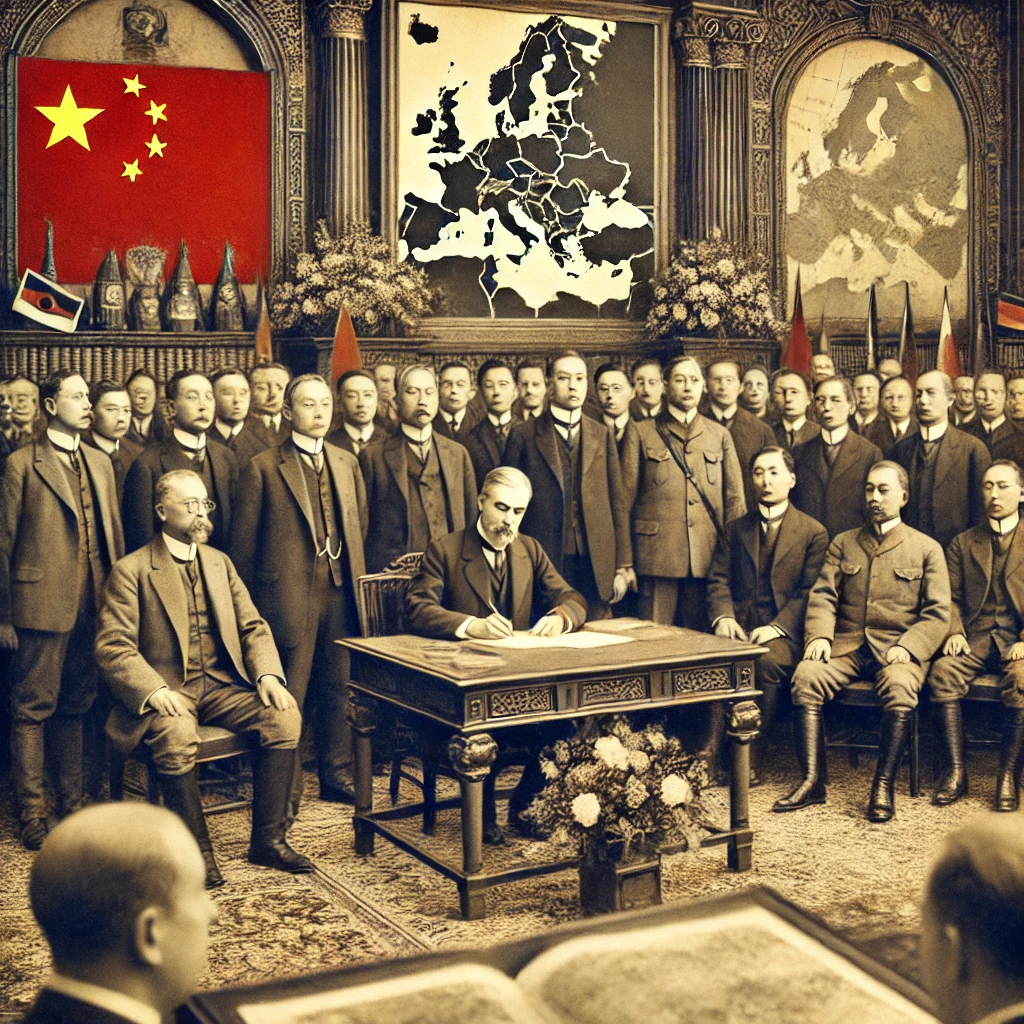China Supports the Allied Powers

On August 14, 1917, during the First World War, China formally declared war on Germany. This pivotal moment occurred as part of China’s effort to support the Allied Powers and assert itself on the global stage. The declaration came after years of diplomatic maneuvering and growing frustration with Germany’s aggression in the Asia-Pacific region. China’s […]
U.S. Congress Passes the Espionage Act
On June 15, 1917, during World War I, the United States Congress passed the Espionage Act. This act made it a crime to convey information with intent to interfere with the U.S. armed forces’ operations or to promote the success of the country’s enemies. Designed to prevent support of U.S. enemies during wartime, the Espionage […]
Birth of John F. Kennedy
John Fitzgerald Kennedy, commonly known as JFK, was born on May 29, 1917, in Brookline, Massachusetts. He would go on to become the 35th President of the United States, known for his charismatic leadership during the Cold War, particularly his eloquent advocacy for democracy and peace. Kennedy’s presidency, though tragically cut short by his assassination […]
Ella Fitzgerald is Born
Ella Fitzgerald, born on April 25, 1917, would rise to become one of the most beloved and influential jazz vocalists of all time. With her remarkable three-octave range, impeccable timing, and the ability to improvise with the precision of a jazz instrumentalist, Fitzgerald’s contributions to music were unparalleled. Over her decades-long career, she won 13 […]
The United States Officially Enters World War I
The United States officially enters World War I, declaring war on Germany in response to its unrestricted submarine warfare and attacks on American ships. President Woodrow Wilson’s decision to join the conflict marks a pivotal moment in American history, as the nation mobilizes its resources and manpower to support the Allied powers in the fight […]
President Wilson Urges Declaration of War
President Woodrow Wilson addresses the United States Congress, urging for a declaration of war against Germany, marking the nation’s entry into World War I. Wilson’s impassioned speech, delivered in response to Germany’s unrestricted submarine warfare and the sinking of American ships, sets the stage for America’s active involvement in the global conflict.
February Revolution in Russia Begins
On March 8th, 1917, a pivotal event occurred in Russian history known as the February Revolution (by the Julian calendar then in use), which led to the abdication of Tsar Nicholas II and the end of imperial rule. Sparked by widespread discontent and exacerbated by the hardships of World War I, the revolution marked a […]
